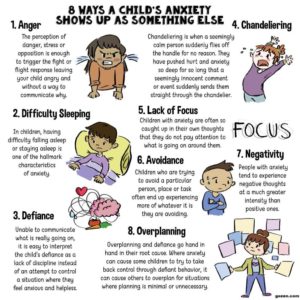We all see our children get overwhelmed and grind to a halt. For some lucky parents it’s at the end of each term, for us it’s more likely to be after five minutes writing, reading, or Maths.
My secret to fixing this is to view it as a 3 legged stool. One of the legs is the difficulty of the task (for them), one is their motivation, and the last one is the amount of variety. “No pleasure endures unseasoned by variety” and tasks which aren’t pleasurable to begin with quickly become painful.
If we start with reframing their behaviour as a cry for help, we can try to do the detective work needed to uncover why they are either lying motionless on their bed, throwing things, comfort eating, unable to sleep, hiding in their room or hurting themselves.

Is it all tasks or just a few? Obviously if it’s everything, then you probably need to press pause on emergency home-schooling and do some soothing activities. We have all been traumatised in different ways and need to be kind to ourselves and each other. What could you try to reconnect and help them open up? It might be cooking together or going for a walk, run, sledge, scooter, bike ride or a drive – being next to each other rather than facing each other is brilliant for communication. Perhaps you could fake an interest in one of their inane games/videos, plan a future trip, make a jar filled with things you plan to do, be physically close to them whilst you each do different things, have a boogie in the kitchen, or watch something funny together. My children and I love a cat video!
Another secret is to use chores to judge how much they hate a task (and chores are amazing for handwriting). “Would you rather write that non-chronological report or chop the veg for dinner?” If they are choosing the veg then we need to work out what it is about that task that is causing them anxiety. If they are choosing neither, then it’s back to trying to reconnect and help them realise that helping others ultimately makes us feel better about ourselves (and def makes family life nicer).
But, if you have identified a problem task:
- Talk to them about which bits are worrying them.
- See if you can both think up some work-arounds (Would it help to do it with someone else? Can they use otter.ai to dictate it? Could you split it up for them? Can the computer read to them? Could they use a calculator? Might their teacher send them a worked example?)
- Then make a note to yourself to spend 5 mins a day fixing any underlying issues (for example, with a reading programme, a spelling app, by learning to touch-type, making flashcards, or learning their times tables etc). Here are some quick ways to assess their reading, writing or spelling age.
Then you need to adjust the other two legs of the stool to fit the task. How much do you need to try to increase their motivation? How much variety do they need in doing the task? For some tasks it will be a lot, for others much less.
When I was writing my dissertation it was very hard, but I was very motivated. It was do-able, but only with breaking it up into bite-size pieces and constantly mixing up the tasks. I needed a lot of variety to keep myself going. For writing this blog post, it was shorter, easier and just needed lots of tea and brain-breaks.
But today’s emergency home-schooling was tough for my eldest son because we are tackling his handwriting. He is hypermobile and has real binocular vision issues, so handwriting is a perfect storm. I know how he feels, I found handwriting really hard so have made this an area of expertise, but handwriting is still the hardest thing most of us will ever learn. It’s harder than driving a car.
Mixing up and switching the activities a lot has helped (2 mins cutting, 2 mins theraputty,2 mins writing out jokes, 2 mins drawing, 2 mins pegging out washing, 2 mins feeding the turtle with tweezers, 2 mins patterns, 2 mins chalking etc. etc.).
But it’s also helped to give him choice and autonomy (so he can pick from a menu of fun activities). Plus, helping him to see how it fits into achieving the things on his dream board (or at least means that he can write faster so he can spend more time playing driving games, groan!!!!) Research has shown us that these are the secrets to building intrinsic motivation. And if that all fails, we resort to his reward chart, so he can win that go-kart day or the next tiny over-priced hot wheels car.



Leave a Reply